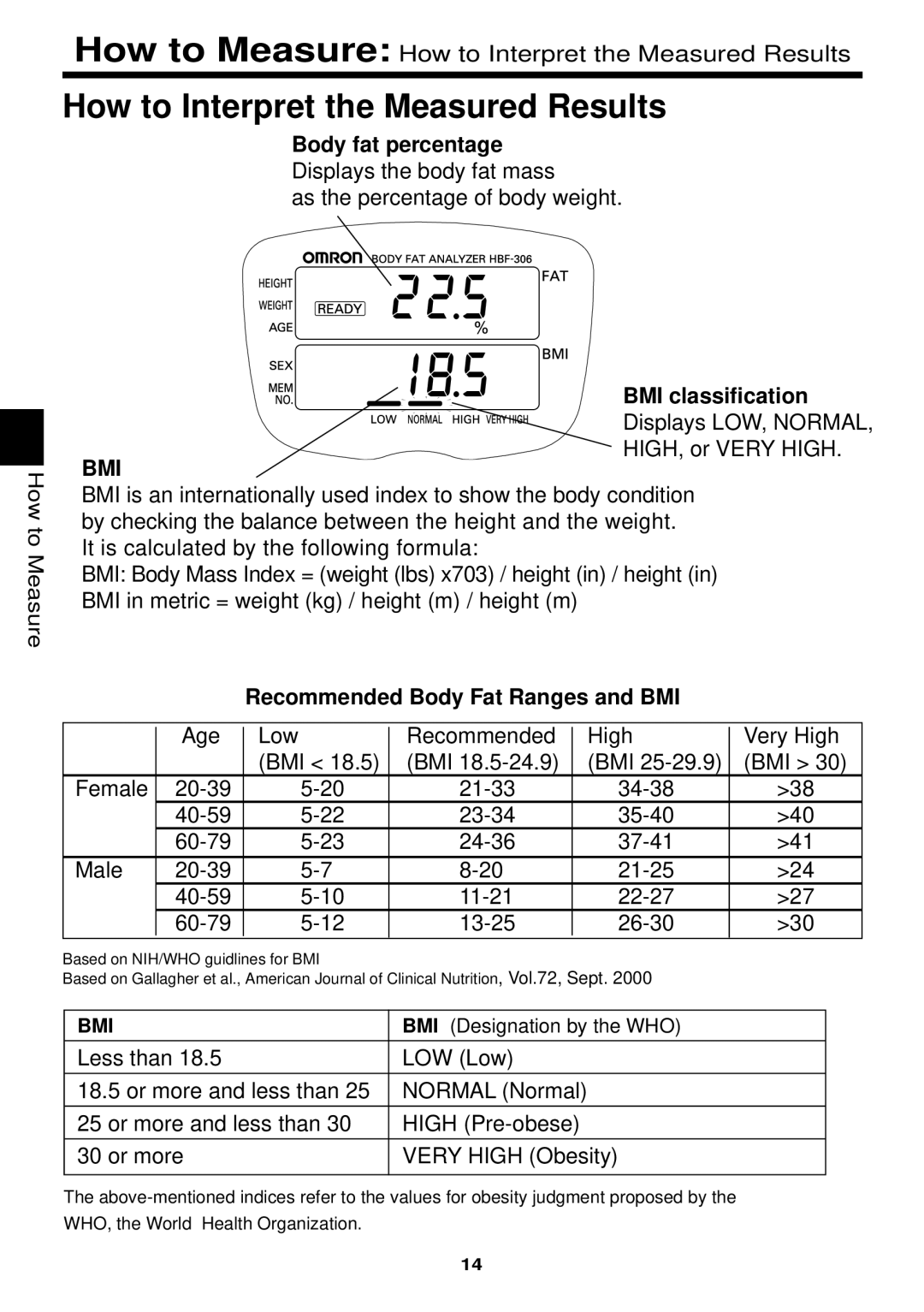
How to Measure
How to Measure: How to Interpret the Measured Results
How to Interpret the Measured Results
Body fat percentage Displays the body fat mass
as the percentage of body weight.
BMI classification
Displays LOW, NORMAL,
HIGH, or VERY HIGH.
BMI
BMI is an internationally used index to show the body condition by checking the balance between the height and the weight. It is calculated by the following formula:
BMI: Body Mass Index = (weight (lbs) x703) / height (in) / height (in) BMI in metric = weight (kg) / height (m) / height (m)
Recommended Body Fat Ranges and BMI
| Age |
| Low |
| Recommended |
| High |
| Very High | |
|
|
|
|
| ||||||
|
|
| (BMI < 18.5) |
| (BMI |
| (BMI |
| (BMI > 30) | |
Female |
|
|
|
| >38 |
| ||||
|
|
|
|
| >40 |
| ||||
|
|
|
|
| >41 |
| ||||
Male |
|
|
|
| >24 |
| ||||
|
|
|
|
| >27 |
| ||||
|
|
|
|
| >30 |
| ||||
Based on NIH/WHO guidlines for BMI |
|
|
|
|
|
|
| |||
Based on Gallagher et al., American Journal of Clinical Nutrition, Vol.72, Sept. 2000 |
|
|
| |||||||
|
|
|
|
|
|
|
|
|
| |
BMI |
|
|
|
| BMI (Designation by the WHO) |
|
|
| ||
|
|
|
|
|
|
|
|
|
|
|
Less than 18.5 |
|
|
| LOW (Low) |
|
|
|
| ||
18.5 or more and less than 25 |
| NORMAL (Normal) |
|
|
|
| ||||
25 or more and less than 30 |
| HIGH |
|
|
|
| ||||
|
|
|
|
|
|
|
|
|
| |
30 or more |
|
|
| VERY HIGH (Obesity) |
|
|
| |||
|
|
|
|
|
|
|
|
|
|
|
The
14
